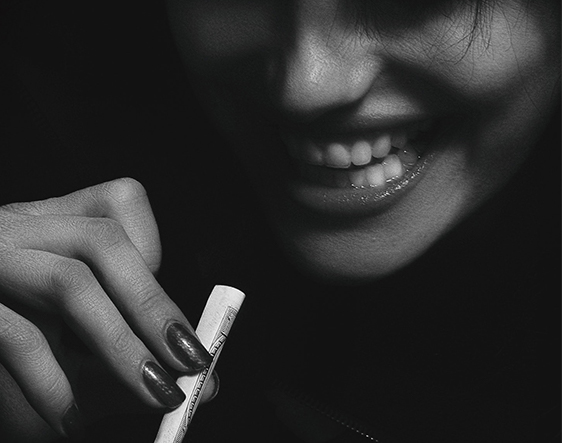There’s no such thing as an addictive personality per se. Any substance or activity that has the capacity to be pleasurable can provide the conditions for addiction, so we’re all at risk. Contributor Dr Mark Winwood, Director of psychological services – AXA PPP healthcare
There’s physical addiction – where the body adapts to a presence of an ingested drug, gets used to it and needs more and more of it, which is called tolerance. And then there’s another form of addiction, which is associated with an overreaction of the brain. The brain starts to get excited and rewards us at the thought of certain drugs or behaviour, so it becomes a kind of neurological pleasure circuit.
It’s a reward we start to crave regardless of the consequences. There will always be debates about whether addiction is a disease or a mental illness, but not knowing where it comes from doesn’t mean we can’t stop it or be treated for it. If you’re addicted to certain drugs and substances, such as alcohol, it would be very unwise to recommend anyone stop them without medical supervision.
Otherwise, here he suggests the steps you can take:
Make a plan
When anyone’s trying to change their behaviour, or feels it has become more than a bad habit, make a plan and prepare a contingency. New Year’s resolutions rarely work because we haven’t planned for it so it’s a nebulous idea.
Get goal focused
Make short-, medium- and long-term goals to help you plan. Taking small steps along the way can be really helpful.
Lessen the stress
Addictive behaviour is usually associated with a reaction to stress – we try to make ourselves feel more comfortable and ‘manage’ it. However, we’re not managing our stress, we’re rewarding ourselves for it and ultimately inviting more stress. It becomes an addictive cycle so try to understand what the stress sources are and then try to reduce them.
Be mindful
Be present and aware of what you’re reacting to rather than just responding on autopilot mode. Put a little sticker on your phone or cigarette pack. It’ll remind you to question what you’re trying to achieve, why you’re doing it and help you re-evaluate your behaviour.
Involve other people
Tell your friends and go to your doctor who can provide information on support groups in your local area. There is a whole variety of therapies to assist people with any sort of addiction.
Don’t give up
Relapse or not, managing to stop or control is not a failure. It’s a way of learning for the next time.”







